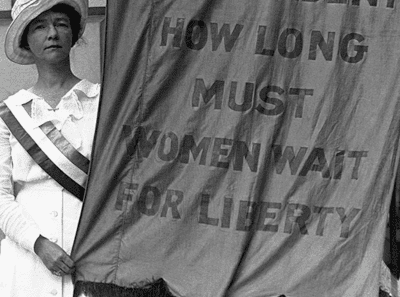Text:
"The right of citizens of the United States to vote shall not be denied or abridged by the United States or by any State on account of sex."
Definition:
The 19th Amendment granted women the right to vote, a major milestone in the fight for gender equality in the United States.
The 19th Amendment: A Milestone for Women's Rights

The 19th Amendment to the U.S. Constitution, ratified in 1920, marked a pivotal moment in the fight for gender equality, granting women the right to vote. Its text states: "The right of citizens of the United States to vote shall not be denied or abridged by the United States or by any State on account of sex." This achievement, however, did not fully extend to women of color.
The U.S. Women’s Suffrage Movement often excluded women of color from their activities and even actively discriminated against them. Many women of color were denied the right to vote for years after its ratification, as discriminatory practices like poll taxes and literacy tests persisted. Full voting rights for all women, particularly Black, Native American, and Latina women, were not secured until later civil rights movements, making the 19th Amendment both a victory and a reminder of the ongoing fight for true equality.
While the amendment was a crucial achievement, it also underscores the intersectionality of the fight for equality, and the work still required to ensure that all voices are heard.
Each term in The Womanhood Lexicon is part of an evolving conversation about modern womanhood. These definitions are open for discussion, interpretation, and refinement as we continue to explore them on the podcast. For episodes where a term has been discussed, you’ll find links directly on the term’s page. We encourage you to engage with the content and join us as we redefine womanhood in the 21st century. Together, we can shape and expand these concepts through meaningful dialogue.


